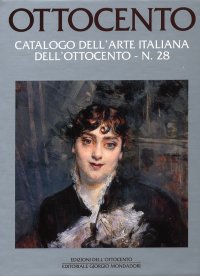Giovanni Boldini. Il Piacere
Rovereto, Mart, November 14, 2020 - February 28, 2021.
Edited by Beatrice Avanzi and Tiziano Panconi.
Genova, 2020; paperback, pp. 368, col. ill., col. plates, cm 24x28.
cover price: € 54.00
|
Books included in the offer:
Giovanni Boldini. Il Piacere
Rovereto, Mart, November 14, 2020 - February 28, 2021.
Edited by Beatrice Avanzi and Tiziano Panconi.
Genova, 2020; paperback, pp. 368, col. ill., col. plates, cm 24x28.
FREE (cover price: € 54.00)
Ottocento. Catalogo dell'Arte Italiana dell'Ottocento. Vol. 30
Milano, 2001; paperback, pp. 495, b/w ill., col. plates, cm 22x30,5.
FREE (cover price: € 40.00)
Ottocento. Catalogo dell'arte italiana dell'Ottocento. VOL. 28
Milano, 1999; bound, pp. 800, col. plates, cm 22x30.
FREE (cover price: € 77.47)
Dante in France. La parola del testo. XVII. 1-2. 2013
Fabrizio Serra Editore
Italian and English Text.
Pisa, 2013; paperback, pp. 162, cm 17,5x24,5.
(La parola del testo. 0017. 0001-0002. 2013).
series: La parola del testo. 0017. 0001-0002
Other editions available: ISSN 1125-6486
ISBN: 88-6227-621-4 - EAN13: 9788862276214
Languages: 

Weight: 0.58 kg

Baia grande. La pialassa Baiona ultima frontiera per una valle salmastra
Konrad. Per quanto un'oca allunghi il collo non diventerà mai un cigno










